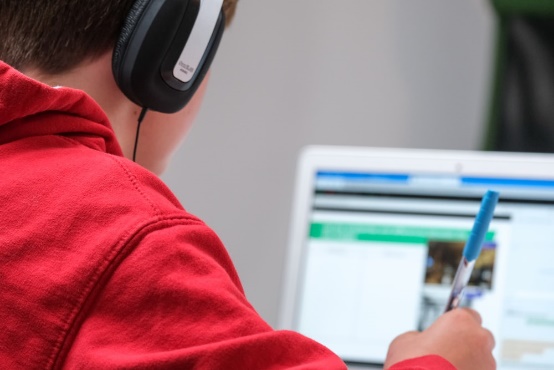Digital media have become an integral part of young people's lives. And although it sometimes seems that everyone has access, the corona pandemic showed that this was not the case. Then it turned out that, for example, far from every child had access to a laptop (of their own) for online education. So how do you ensure that children have the same opportunities to develop? Professor Liesbeth Kester, together with colleagues from other knowledge institutions and partners in the field, wants to find an answer to that question. She received a grant of almost three million euros from NWO to carry out her research together with the consortium.

Young people, their parents, teachers and other supervisors are making great use of the new possibilities such as social media and games, as well as digital learning tools and tracking systems. Digitalization seems to blur boundaries between home, school and social environment. But how does this affect children's development? To identify the opportunities and threats, the NWA program "Youth and digitization - impact on identity development, relationships and equity" was created (1). The program aims to develop action perspectives to exploit the opportunities of digitization and reduce the negative impact. Utrecht professor Liesbeth Kester is the first to receive a grant from the program, and the only one this round (2).
'By closely involving young people, their parents, teachers and other facilitators throughout the study, we increase the likelihood that our research will make a difference' - Liesbeth Kester.
"It's great that our consortium has the opportunity to contribute to a solution to the social issue: opportunity inequality," Kester said. "By looking at the movements of our youth in the media landscape that surrounds them, at home, at school and in the neighborhood, we are trying to find out what impact the digital media in this landscape have on their development and opportunities."
In the consortium that Kester leads, she works with nearly 20 partners; from the University of Twente to the Center for Youth and Families. Their goal is to build a bridge between science and society, so that together answers are found to social issues.
"This broad approach to the impact of digital media is unique to our proposal, as is our knowledge chain-wide approach. By this I mean that fundamental researchers collaborate with practice-based researchers and that youth, their parents, teachers and other supervisors are closely involved throughout the research. This significantly increases the likelihood that our research will make a difference."
From Utrecht University, associate professors Ina Koning (3) and Helen Vossen (4) are also involved in the research.
https://www.nwo.nl/onderzoeksprogrammas/nationale-wetenschapsagenda-nwa/thematische-programmering-nwa/jeugd-en
https://www.uu.nl/medewerkers/LKester1
https://www.uu.nl/medewerkers/IMKoning
https://www.uu.nl/medewerkers/HGMVossen

